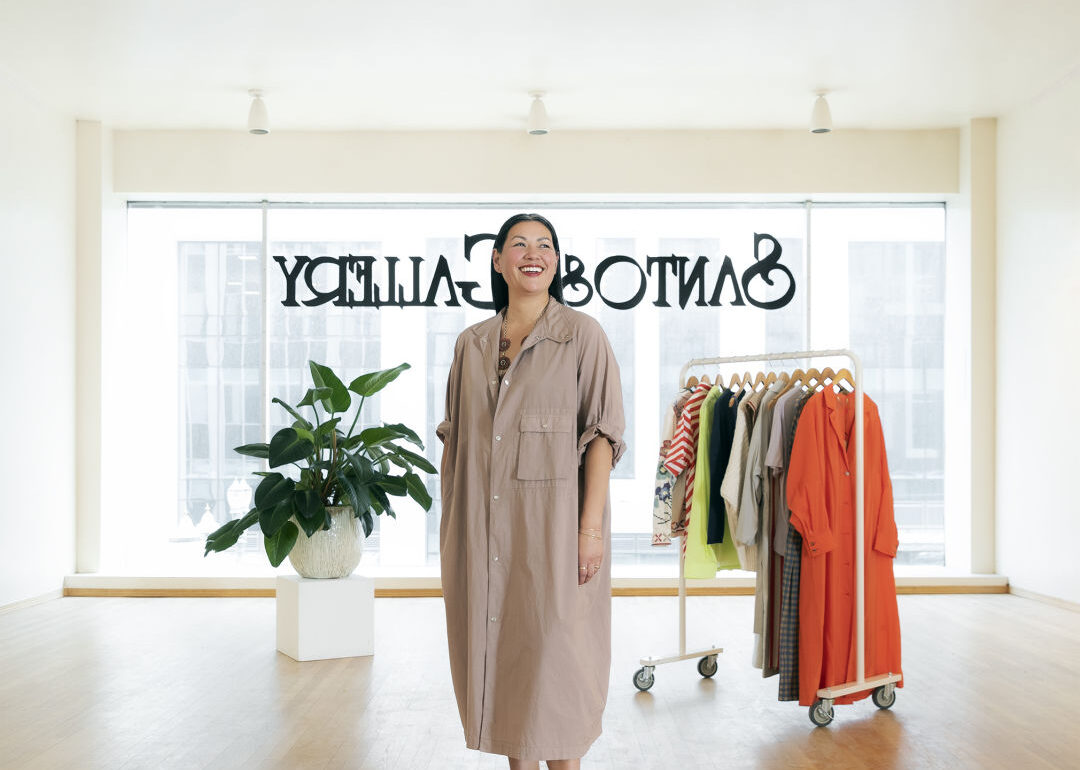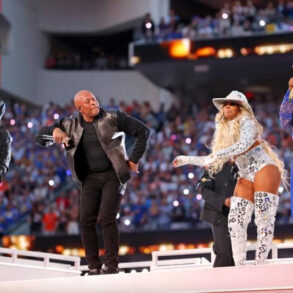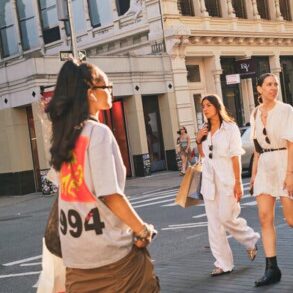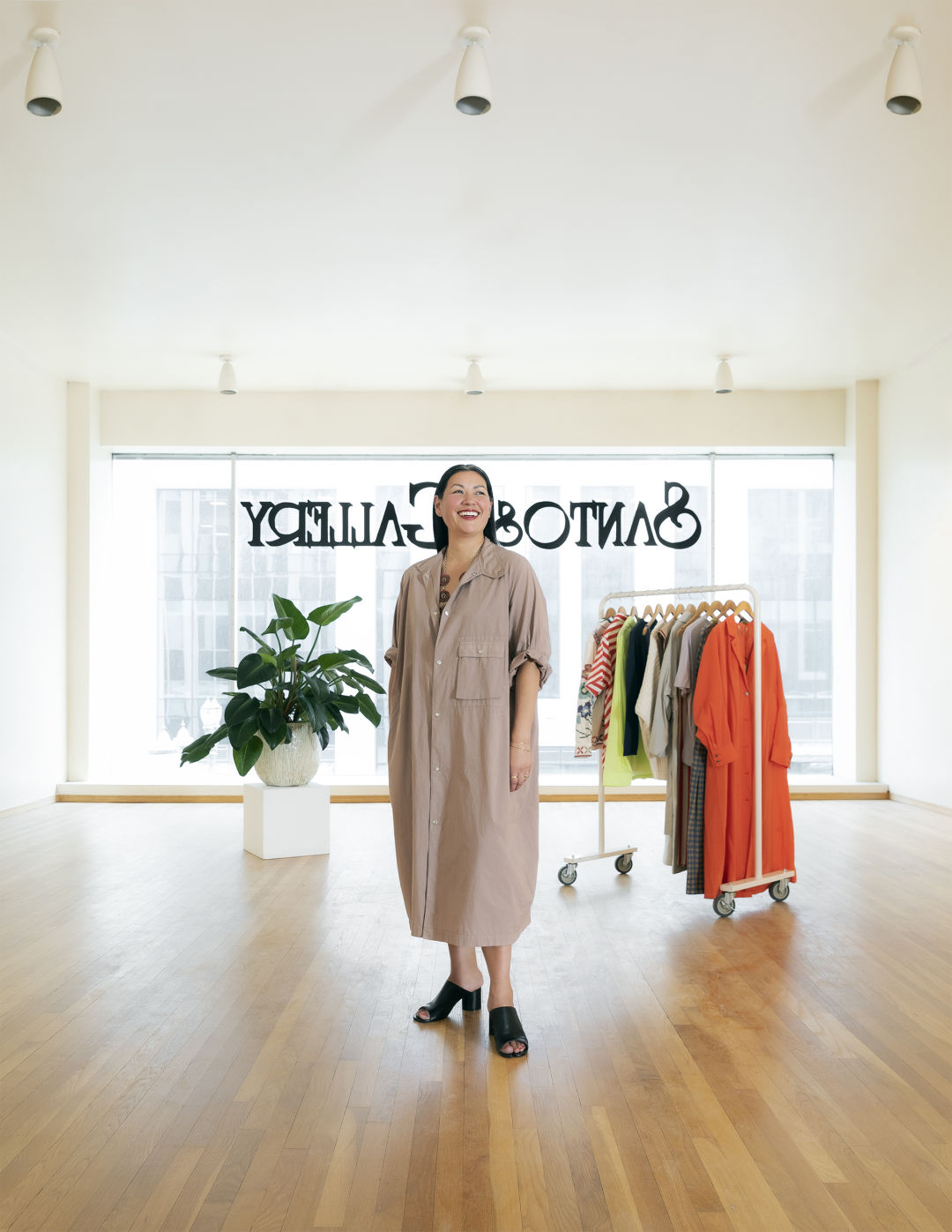
Pamela Baker-Miller is moving her downtown boutique, Frances May, for the fifth time in 15 years, though she’s never strayed more than a few blocks from the YES sign above her first location. Her latest move, to a storefront directly across SW 10th Avenue from Portland’s new Ritz-Carlton, is an entrepreneurial effort to dig in before getting priced out. She bought the building.
When Baker-Miller came to town in 2008, she joined fellow businesses in setting out to reinvigorate the section between West Burnside and Morrison Streets, and Broadway and SW 14th Avenue. At the time, the neighborhood was a microcosm of the city, anchored by Powell’s Books along its border and abetted by notable food carts, restaurants, hotels, and exceptional-yet-low-profile shopping. Portions of the area had previously been called the Burnside Triangle and the onetime queer district, “Vaseline Alley.” But on paper, officially, it was all called simply Downtown. “We found the West End map from like 18-whenever,” she says. “And we were like, ‘We’re naming this neighborhood the West End!’”
The West End shopping district thrived for years but took a dystopic lockdown turn as hotels laid empty, businesses boarded up, and offices vacated. Baker-Miller decamped to a warehouse space and ran her business online. When she reopened her West End storefront, several break-ins ensued. The struggle to bring the neighborhood back persisted, leaving many Portlanders wary of making a trip downtown.
Things were bleak, though the Ritz-Carlton’s 35-story tower of reflective, angular glass was shooting upward, a years-long, $600 million project that Portlanders had to see to believe. Many locals bristled at the Ritz’s generic brand of opulence, amid a wave of cookie-cutter, frictionless luxury threatening to strip the West End of its vitality. But after seeing what happens to downtown blocks when they serve as the epicenter of the city’s houselessness and addiction crises, much of the business community has embraced the Ritz with reluctant acceptance. There is a sense that perhaps it’s too big to fail, and that perhaps such a monumental influx of cash and attention is necessary to carry the neighborhood toward sustainability.
Frances May is one of a handful of ambitious West End clothing boutiques that have been working for years to return the neighborhood to its shopping-district glory days. Kissing Booth, a high-end vintage clothing store part-owned by proprietors of Bare Knuckles (a vintage workwear-inspired label sold at Frances May), moved across the street from Frances May a couple years ago. A few blocks away, in the Morgan Building, is Stand Up Comedy, the avant-garde women’s fashion retailer and longtime West End staple.
You would not be misguided to inquire whether Portland possesses a sizable market for the refined workwear of Paris’s Lemaire and the one-of-a-kind garb crafted from antique textiles by New York–based label Bode. Frances May’s tenure proves it does, though the store has always operated near the Ace Hotel, which opened in 2006 and helped drive the West End’s renaissance. Baker-Miller mentions that lauded British author Zadie Smith sometimes drops by when she’s in town—an essay collection of hers is one of a few books for sale at the boutique. Food personality Alison Roman recently Instagrammed about a walnut-colored Lemaire overcoat she bought passing through town on her book tour. Justin Machus, owner of eponymous menswear retailer Machus, which moved to the neighborhood in 2021, estimates 40 percent of his customers are tourists.
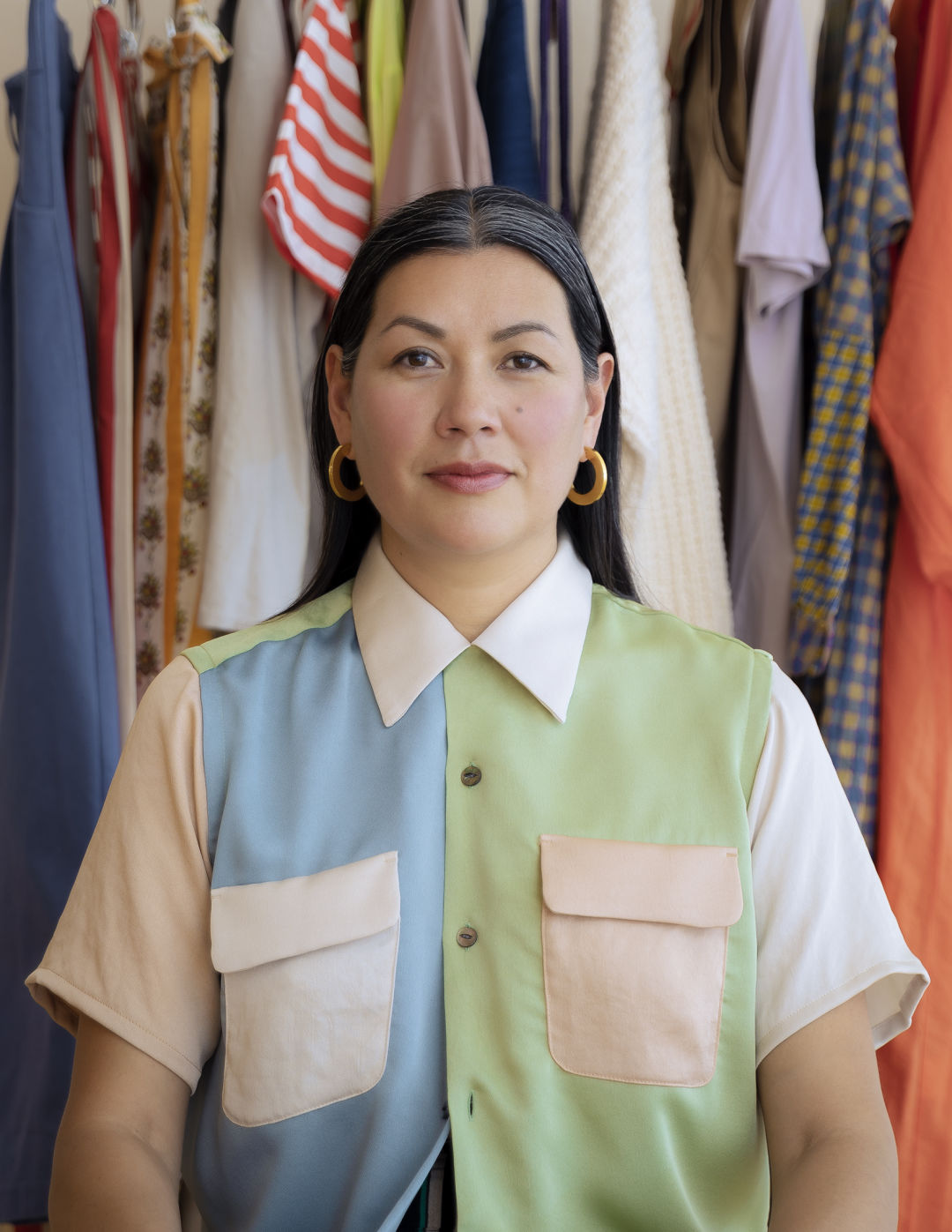
This community of like-minded but distinct stores is a far cry from the homogenized luxury many Portlanders have long feared is invading the city. “Even though we’re bringing in stuff from all around the world, each one of us has our own ideas,” says Machus. “The glue that makes it all interesting is that we are all single store owners trying to curate something for this new Portland.”
Clothes at these West End boutiques are no doubt expensive: the window of Frances May recently featured a Maison Margiela line of split-toe “tabi” boots, derbies, and ballet flats that starts at $690. These boutiques appeal to studied enthusiasts—the types who read style subReddits, not simply those with money to burn. This ethos differs subtly from the “stealth wealth” popularized by Succession as a mode of signaling among the rich: dry-clean-only fabrics in earth tones, plush wool, nary a visible label. The Frances May customer is more concerned with personal expression, quality materials, and the garments themselves over wealth signaling. There are no Gucci-print pants or bedazzled Philipp Plien sweaters, either. At Frances May, drapey, natural tone knits from Lauren Manoogian and meticulously crafted flannels and khakis from French designer A.P.C. appeal to intentional shoppers and pragmatic collectors.
Portlanders are fine, it turns out, with expensive commodities. See: a Patagonia pullover and jeans worn with On Running sneakers, an outfit that can cost north of $700. It’s not, Can we afford it? It’s, Do we want it, and does it hold some alibi of novelty or function?
As for that new building, Baker-Miller plans to push beyond “just clothing and shoes.” Surveying the empty, three-story, 8,000-square-foot space still featuring the former tenant’s carpet-store window signage, she mentions Dover Street Market—the London-based fashion retailer that’s more multiexhibit art gallery than clothing boutique—as an example of what she has in store. That means there will be a café in the mezzanine—coffee, probably, and perhaps a wine bar with snacks. Local florist Colibri will also have a space, along with several shop-within-shop retailers, to reduce some of the tremendous overhead required in retailing luxury goods. The Parisian label A.P.C. has signed up for its own display of casually elegant staples. Don’t expect the coffee shop attached to Nordstrom, nor the stuffy department store restaurants of Manhattan. Standing outside her new store, Baker-Miller says that if you’re searching for a local comparison: “We don’t really have that yet.” She eyes her first location’s “YES” sign just 50 feet away and says with a sigh, “I hate moving.”
The 6 Lives of Frances May
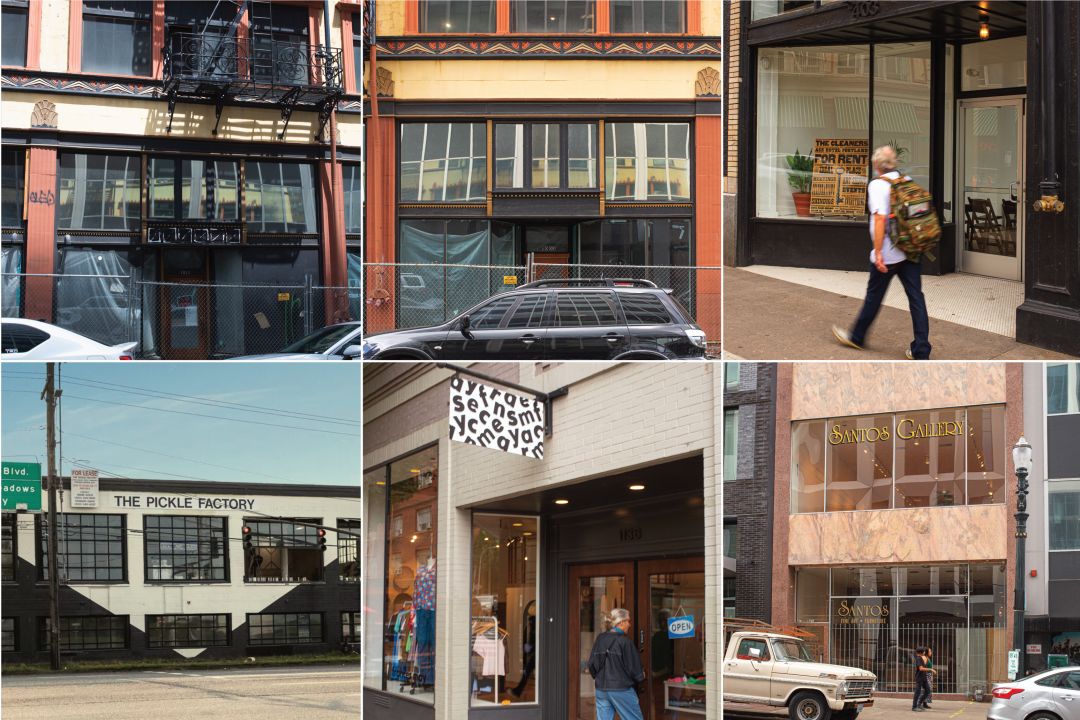
1013 SW Washington St 2008–2014 “I only had three tiny racks, and it was a wonderful space. It was an old magic shop, and we eventually grew out of it.”
1003 SW Washington St 2014–2019 “A rug shop wanted to downsize, so we swapped. It was a corner location, and we had a little studio space so you could see us running a proper photo shoot. I absolutely loved it—we were living the high life and Portland was the coolest place to be. A developer purchased the building.”
The Cleaners at the Ace Hotel, 403 SW 10th Ave 2020 “We painted all of the wallpaper and hand-dyed all the curtains. The aesthetic execution was my favorite of all the locations. But the pandemic happened.”
The Pickle Factory, 866 N Columbia Blvd 2020 “We had no storefront for five months, and were just running out of a warehouse.”
1136 SW Alder St 2020–2023 “One mishap after another—there was a flood and it was literally raining on our heads. And the layout is a little awkward and disjointed, and limited on offices and studio space.”
521 SW 10th Ave Opening mid-September 2023 “I used to walk by and think that if someday it becomes available, I want this building. It’s really a gem: pink marble façade, floor-to-ceiling windows. People say, ‘Ohhh, I love that building.’”




